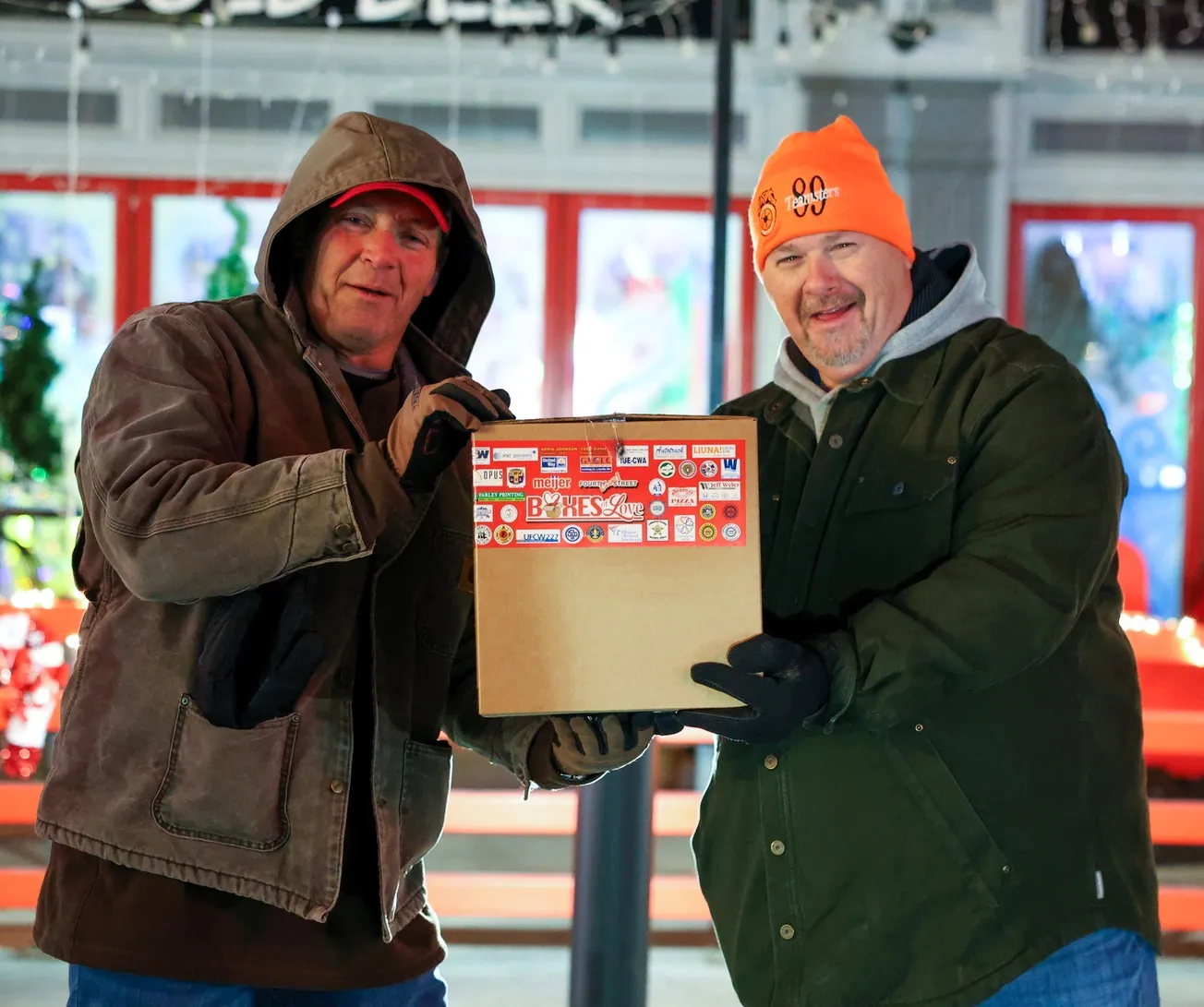About 20 union members and union allies converged on a rural Garrard County tobacco farm Sunday to back seven striking Mexican migrant workers.
Few of the visitors could speak Spanish. None of the strikers speak English.
“Though communication had to take place through interpreters, the meaning of solidarity came through loud and clear,” said Stephen Bartlett, a field organizer with the Farm Labor Organizing Committee, an AFL-CIO affiliate union.
Bartlett, the Kentucky FLOC organizer, and Felix Garza of the National Farmworker Ministry teamed up as translators. “Even if we hadn’t, the workers would have understood that friends had come to be with them,” Bartlett said.
He and Garza are from Louisville. So were several of the strike supporters.
In addition, FLOC President Baldemar Velasquez and a union delegation came to be with the workers. “He spoke about the FLOC union’s 50-year history of struggle and its wins,” Bartlett said.
The strikers work for Wayne Day, who grows tobacco near Paint Lick. With FLOC in their corner, the farmworkers went on strike because Day, over a three-year-span, had refused to pay thousands of dollars he owed them, Bartlett said.
“The workers knew they were being cheated from the beginning and tried to protest even the first year, and they got a dollar more per hour in the second year after protesting.”
“Under federal law, the H-2A farmworkers minimum wage in Kentucky is $10.92 an hour,” Mike Elk wrote in Payday Report online. “However, these workers were paid $7 an hour in 2015, $8 an hour in 2016, and $8 an hour again in 2017.”
“Occasionally, for many tasks, the workers were paid only by a piece rate, earning as little as $3.25 an hour,” Bartlett said.
He went to Day on Sept. 19 with a letter demanding that the workers be paid back wages and receive the H-2A minimum wage. “He told the workers if they didn’t like the wage, they could return to Mexico,” Bartlett said.
The farmworkers refused to knuckle under and went on strike Oct. 11. “Day’s threats aren’t going to work,” Bartlett said. “They came here to support their families back home. They’re going to fight for what’s rightfully theirs and the wages promised them in their work contract.”
Elk quoted a statement from Cristian Santillan, one of the farmworkers: “We are on strike because of the unfair pay of the grower who hopes to get away with not paying us the correct wage. We came to work for a better life for our families through sacrifice and sweat. But what we have been paid is insufficient. Even working at high speed, we cannot earn a living wage on this farm.”
Bartlett said Day’s cousins who also grow tobacco evidently are underpaying their migrant workers, too. He said such abuses likely exist statewide, but he added that many workers, even those in the H-2A program, are afraid if they speak up they will be deported or not invited to return to work the following year.
He said President Donald Trump’s almost non-stop pandering to nativism and xenophobia has “empowered a lot of local police and local citizens to take action against immigrants in a racist upsurge.”
Bartlett said the strikers come from Nayarit and Hidalgo, Mexico. “Apparently, this grower counted on them feeling so marginalized that they wouldn’t protest. But they are a tight group of guys who mostly knew each other back in Mexico. They decided they wouldn’t put up with it any more.”
They sought a legal aid attorney in Lexington, who referred them to FLOC. The seven are the first farmworkers to sign FLOC union cards in Kentucky this year. “Other workers were signed two years ago,” Bartlett said.
He expects to sign more as the organizing campaign advances.
“We are hearing about other H2A farmworkers in Kentucky suffering from similar injustices,” he said. “We expect this first strike to launch other actions across the state. A victory in this first tobacco strike will undoubtedly multiply the impact of FLOC’s organizing in the state.”
Meanwhile, after enjoying a traditional Mexican midday meal at the barracks where the farmworkers live, the supporters, accompanied by the strikers, took a solidarity letter to Day’s house. He wasn’t home, so they deposited the letter inside the front door, Bartlett said.
“While we were all standing around, his cousin and her husband drove up, stopped, and asked us what we were doing,” he said. “When we told her, she looked kind of shocked and drove on up a hill and parked and watched to see what we were going to do.
“After we delivered the letter, we talked a while and left. But we were happy that his cousin saw us and could tell him how big our group was.”
Bartlett said Day’s lawyer is conferring with an FLOC lawyer. “We expect that Day is going see the handwriting on the wall, pay out, and sign a union contract. We hope to see a victory soon.”
If Day digs in, Bartlett said a picket line will go up at the farm. “But right now, we’d like to have some volunteers who speak Spanish to go out there and be with them just to break the isolation. They’re stuck in the barracks.”
Kentuckians have been donating food, clothing, blankets and household items to the strikers. Also, there’s a strike fund for cash contributions. Click here to donate.
More information is available from the FLOC website and from Bartlett. His email address is estebanbartlett@gmail.com; his phone number is 502-415-1080.
Bartlett said the FLOC is also communicating with Richmond, Va.-based Universal Leaf, a multinational corporation which buys the tobacco the workers harvest for Day.
–30–
Thoughts? Comments? Add yours to the comment section at the bottom of the page!
Comments







